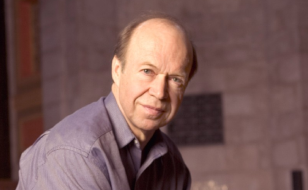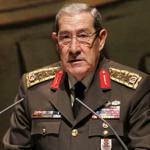Army Will Make Peace with AKP
Abdullah Gül's presidential candidacy seemed doomed after the Republican People's Party (CHP) boycotted the elections, after the General Staff published an "e-memorandum" in the aftermath of those boycotted elections, after the "Republican Rallies", and after the Constitutional Court decreed that 367 MPs were necessary to form a quorum for the ballot.
Then the 22 July elections happened.
Second presidential elections this year
Gül is now a candidated again, and he received 341 votes in the first ballot. It is likely that he will be elected in the third round, in which a simple majority is enough, which means 276 votes. This time round there are no meetings and no announcements. Even the boycott of the CHP seems to have been softened.
Caliskan: Kemalism does not represent the people
Assistant Professor Koray Caliskan of the Political Science and International Relations department at Bosphorus University (Istanbul) has interpreted the current situation as "an illusion created by the media", but also conceded that the general elections showed that "acting in the name of an empty ideology like Kemalism does not represent the people".
"The CHP keeps talking about not accepting invitations or joining receptions. General Yasar Büyükanit continues to distinguish between "in essence" and "in words". The Justice and Development Party (AKP) has had one of the most successful elections of the Republican history. It would not be possible to continue the Republican Rallies, which after all did not translate into votes, in the face of such a victory."
AKP moving towards the centre
Caliskan pointed out that the AKP have taken pains to emphasise that, despite their overwhelming success, they respect those who did not vote for them and said "We will be Turkey's party". For the AKP, becoming a party of the centre would be its greatest test yet. For Caliskan, Gül's candidacy is also such a test.
AKP and army not very different
"Gül is acting strategically by making dangerous statements in a soft tone. It was him who started the trouble with Article 301. With such policies he will become closer to the army. The AKP and the army are actually not very different ideologically. Only symbols like the headscarf separate the party from the army. In the next twenty-five years, the army will make its peace with the conservative style of the AKP."
AKP aims at silencing opposition
According to Caliskan, the "stability" which the AKP evoke so often will depend on two things in the new legislative period: first, making peace with the army, and second, filling the public bureaucracy with people who do not oppose the party.
"For instance, the Dogan group has fired [Hürriyet] journalist Emin Cölasan because he criticised the AKP very strongly. This is [editor-in-chief] Ertugrul Özkök saying, 'We will not oppose the AKP any longer, we will kiss the hand which we could not twist'. Özkök has become a government barometer."
The left will disappear or redefine itself
Caliskan does not predict a serious crisis, as he says that the AKP will easily place themselves at the centre, now that the laicist bourgeoisie and the CHP have been defeated.
"For a long time, the AKP was tripped up by President Ahmet Necdet Sezer. Now he will be gone. The decision-making processes will be speeded up. If everything continues like this, the AKP can easily claim in three years time that it has increased the national income."
The AKP, so Caliskan, will redefine the political centre in the next twenty-five years: "We will either witness the disappearance of social democrats and the CHP or a redefinition of the socialist perspective. The former is more likely." (GG/AG)
GÖKÇE GÜNDÜÇ'ün söyleşisi
Madra: Küresel Isınma En Çok Yoksulları Mağdur Edecek

GÖKÇE GÜNDÜÇ'ün izlenimleri
bianet Yazı İşlerinin Parçası Olmaya Dair

Bakanlık, "Munzur Korunmalı" Diyenlere Cevap Vermiyor







